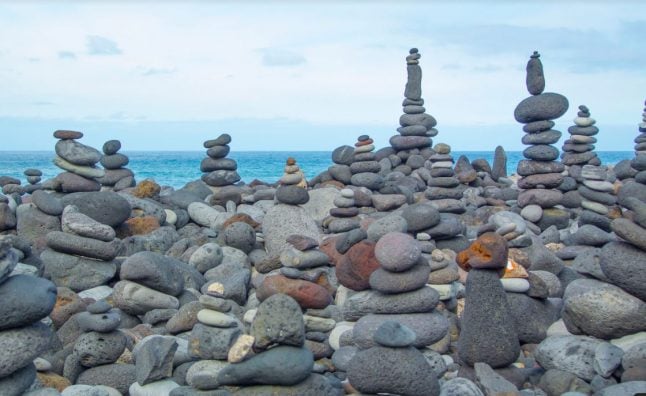For years people have been drawn to Playa Jardin near Puerto Santa Cruz and El Beril on the Adeje side of Tenerife to create their own tower of stones, made by gently balancing one stone upon another in attempt to make it as high as possible.
The seeming harmless activity has seen its popularity soar thanks to instagrammers and it the area is even listed on google maps as a tourist attraction for the stone creations.
But piling up the stones has a devastating effect on the fragile environment, claim local conservations who have been battling to dismantle the towers and return the beaches to their natural state.
Local organisations with the support of the council and Tenerife government have launched a public awareness campaign which will include posters detailing the environmental damage caused by stone towers.
Pedro Luis Sánchez, a local biologist at Teide National Park produced an educational video for the campaign named #PasaSinHuella (Leave no trace), explaining: “The stones provide a home for living beings, such as plant organism that are essential for the health of the soil and are needed for insects to thrive. They in turn provide food for repiltiles who live under these rocks. When we pile up the rocks, we take away their home”.
A team of 150 volunteers met last Saturday to carefully take apart every single tower and managed to level the beaches within just half an hour.
But within a day, the cairn-like structures, which unlike in some cultures have no spiritual association on the island, had returned.
Jaime Coello, director of the Fundación Telesforo Bravo-Juan Coello that is behind the initiative is calling for more to be done.
“We need legislation to impose punitive measures on those who continue to build these towers,” Coello told local Tenerife newspaper El Dia.
David Hernandez, local councillor for environmental matters confirmed that posters would be put up as “a matter of urgency” and that the council will study measures to impose a legal ban.



 Please whitelist us to continue reading.
Please whitelist us to continue reading.
Member comments